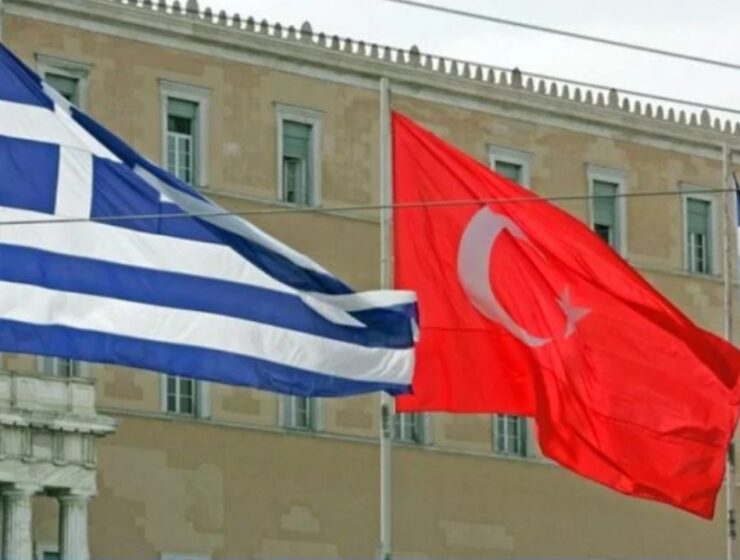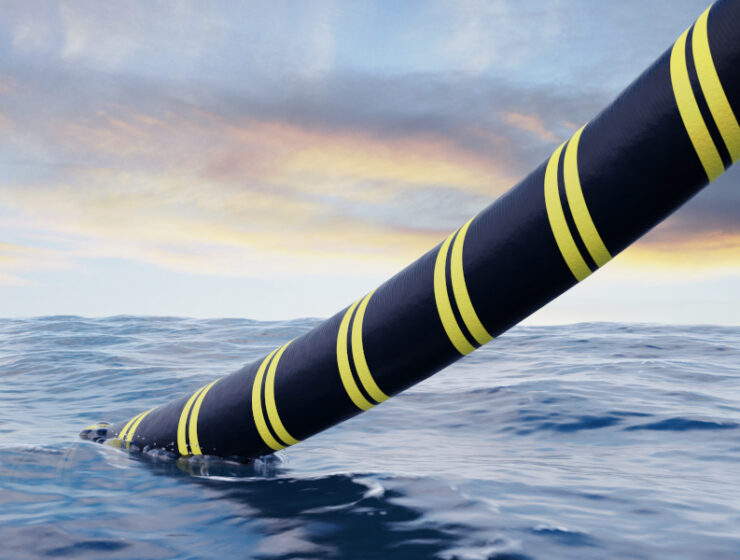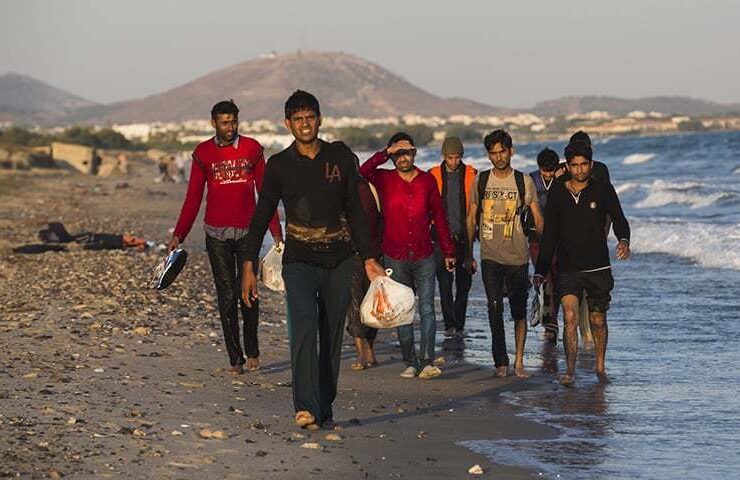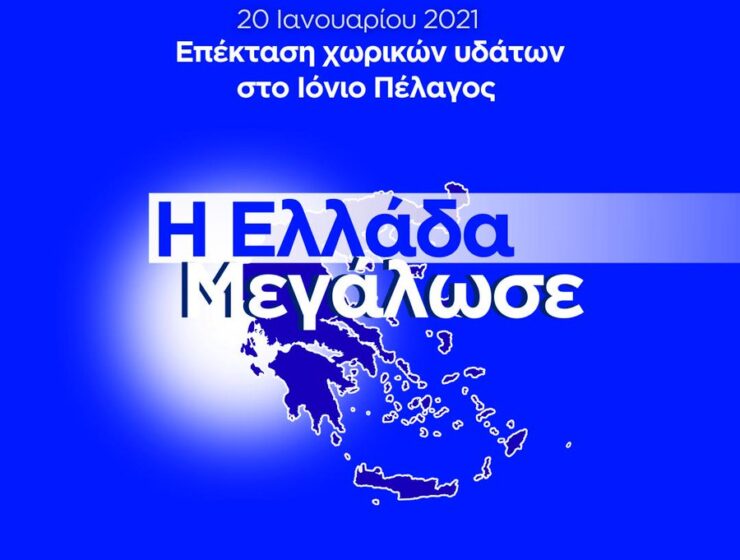Turkey has criticized Greece’s Maritime Spatial Planning Map, with analysts claiming that Greek islands have no effect and a median line should apply in the Aegean. The map, part of Greece’s EU obligations, has been deemed invalid by Turkey, escalating maritime boundary disputes. Meanwhile, Germany’s veto on Eurofighter jets to Turkey is linked to the imprisonment of Istanbul’s mayor, Ekrem İmamoğlu.
Tag: international law
A dispute has erupted between the Turkish government and opposition over Greece’s map for Maritime Spatial Planning, with the opposition labeling Greece’s submission to the EU as an “act of war.” CHP MP Oğuz Kaan Salıcı warned that such plans would bring tension to the Aegean, while pro-government media accuses the opposition of forming an anti-Turkey alliance with Greece, Israel, and Cyprus.
Türkiye’s Defense Ministry mocked Greece’s claim of a “five-minute” reaction to alleged threats, dismissing it as absurd.
Turkey has escalated its criticism of Greece’s newly announced maritime spatial planning, calling it a violation of international law. Sources from Turkey’s Defense Ministry told TRT that Greece’s unilateral actions in the Eastern Mediterranean and Aegean lack legal basis and infringe on Turkey’s rights, vowing to protect the “Blue Homeland” with determination.
A new chapter in Greece-Türkiye relations unfolded as both nations issued statements regarding their respective Maritime Spatial Planning (MSP) initiatives, highlighting competing claims in the Aegean Sea and Eastern Mediterranean.
Turkey has strongly condemned the Greece-Cyprus-Israel undersea power cable project, asserting that such actions violate international maritime law and the UN Convention on the Law of the Sea. Ankara warns that it will not allow any faits accomplis, highlighting the unresolved boundaries in the Aegean and Eastern Mediterranean.
Ankara is reacting strongly to the activities of Greece, Cyprus, and Israel concerning the undersea…
He reaffirmed SYRIZA’s commitment to supporting the descendants of Greek-Anatolian refugees.
In a recent interview with Fox News, Greek Minister of Foreign Affairs, George Gerapetritis, discussed Greece’s approach to regional stability and international relations, focusing on the situation in Syria, relations with Turkey, diversification of international partnerships, and strengthening ties with the US. He emphasized the need for inclusive institutions in Syria, adherence to international law in resolving maritime disputes with Turkey, and the strategic importance of new corridors like the India-Middle East-Europe Corridor.
Greek Foreign Minister Georgios Gerapetritis discussed the Syrian crisis with Patriarch John of Antioch, highlighting the need for unity and peace while condemning attacks on civilians, as Greece vows to uphold international law and support Syria’s diverse communities.
On the third anniversary of Russia’s invasion of Ukraine, the Greek Ministry of Foreign Affairs called for an immediate ceasefire and a just, lasting peace, expressing sorrow for the lives lost and acknowledging the struggles of the Greek diaspora in affected regions. The statement reinforced Greece’s commitment to international law and condemned any aggression against sovereign nations.
U.S. and Russia Conduct High-Profile Prisoner Exchange: Crypto Criminal Swapped for American Teacher
In a landmark diplomatic exchange, the United States and Russia have executed a prisoner swap involving Russian cryptocurrency criminal Alexander Vinnik and American schoolteacher Marc Fogel. Vinnik, arrested for laundering billions through his crypto exchange, was exchanged for Fogel, detained in Russia for possessing medicinal marijuana. The move highlights a significant step in the complex diplomatic relations between the two nations.
Greece is set to continue deepening US defence ties with Trump administration National Defence Minister…
G. Gerapetritis in Syria: “New Institutions Must Align with International Law and the Law of the Sea
Greek Foreign Minister Giorgos Gerapetritis, in a meeting with Syria’s transitional leadership in Damascus, emphasized the need for new Syrian institutions to align with International Law and the Law of the Sea. He reiterated Greece’s commitment to the region’s peace, prosperity, and support for Christian populations.
The European Union is planning a major overhaul of the 1951 Refugee Convention, potentially allowing member states to deport failed asylum seekers and criminals. This move, driven by the belief that the post-war agreement is outdated, could drastically change European migration policy and spark debate over human rights protections.
Greek Defense Minister Nikos Dendias warned of Turkey’s neo-Ottoman ambitions, citing their pursuit of regional resources and controversial geopolitical activities in the Aegean and Middle East. He expressed concern over potential claims on Greek islands and the destabilizing impact on NATO, particularly given the ongoing Russia-Ukraine conflict. Dendias suggested that the US could play a role in urging Turkey to respect international law. He also highlighted the “Blue Homeland” military exercises as evidence of this concerning trend.
In a recent development that has escalated tensions between Turkey and Greece, Turkish media outlets have accused Greece of militarizing the Aegean islands, which were granted to Greece under specific conditions. The accusations come amid ongoing disputes over territorial and maritime rights in the region.
Greek Defense Minister Nikos Dendias commemorated the four-year anniversary of Greece’s decision to expand its territorial waters in the Ionian Sea, emphasizing that the move was based on the UN Convention on the Law of the Sea (UNCLOS). Dendias also highlighted Greece’s commitment to international law, contrasting it with Turkey’s refusal to adhere to UNCLOS in the Aegean.
The UN Security Council has adopted a resolution co-authored by Greece and the United States, addressing the rising security threats in the Red Sea. The resolution condemns Houthi attacks on commercial vessels and oil terminals, stressing the importance of safeguarding this vital maritime route for global trade. It calls for immediate cessation of hostilities, the enforcement of an arms embargo, and the release of the detained *Galaxy Leader* crew. Greece reaffirmed its commitment to maritime security, highlighting its contributions to EU naval operations and urging a comprehensive political solution for Yemen’s stability.
Greece voiced deep concern over the escalating crisis in Yemen at the UN Security Council, condemning Houthi attacks on civilian infrastructure and calling for de-escalation, dialogue, and diplomacy. Greek Ambassador Evangelos Sekeris emphasised support for the Yemeni government, a political solution, and urgent humanitarian aid, while urging unity within the Security Council and protection of maritime security in the region.



















